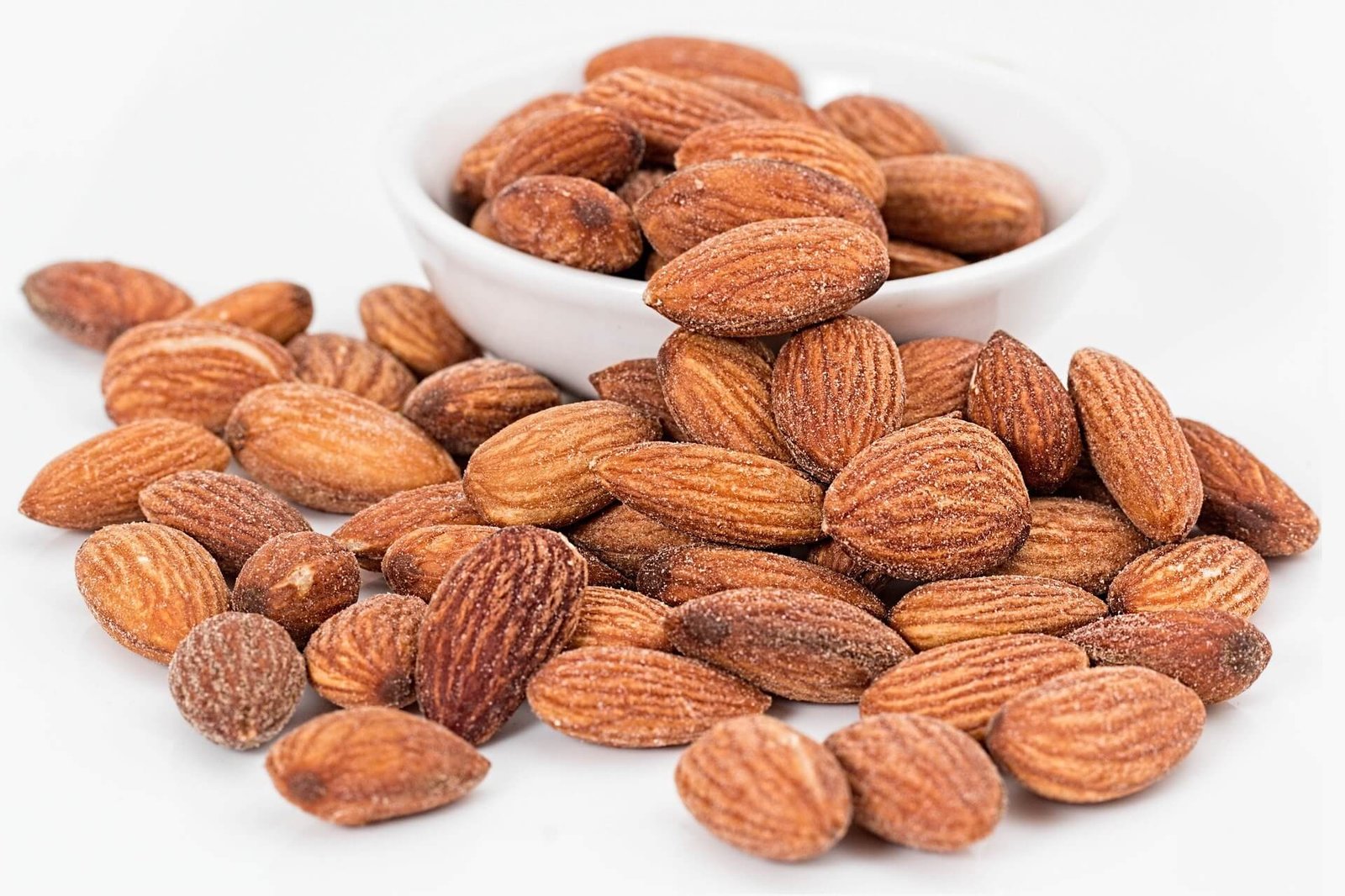Almonds 8 Shocking Health Benefits to improve our body
 Overview
Overview
An almond tree, or Prunus dulcis, produces edible seeds called almonds. They are among the most popular tree nuts in the world. While almonds may be referred to as nuts, they are seeds. Numerous varieties exist, and they are classified according to their size, shape, and color. The almond tree may have been the first tree cultivated by people. California, the land of Hollywood superstars, grows and produces the most almonds in the world.
They are a healthy snack that can be eaten raw or toasted, as well as added to sweet and savory dishes. They can also be bought sliced, flaked, sliced, or slivered, as flour, oil, butter, or almond milk. The benefits of it can be numerous. In the form of almond butter, you may find them on your plate as a source of protein.
They can also be tossed into salads as fats to keep you fuller longer. As a final bonus, you can have them as an afternoon snack loaded with energy to fuel you until dinner. Regardless of the role that almonds play in your diet, they are award-winners in terms of both taste and health benefits.
Nutritional Value

The nutrient profile of it is impressive. The following nutrients are found in 28 grams of almonds:
- The fiber content is 3.5 grams
- The protein content is 6 grams
- Total fat content: 14 grams (9 monounsaturated)
- Vitamin E content: 37% of the recommended daily intake
- Manganese content: 32.0% of RDI
- Magnesium content: 20% of the RDI
Additionally, they are a good source of copper, vitamin B2 (riboflavin), and phosphorus.
The almond has been linked to 8 health benefits. Among them are:
1. A lot of Antioxidants
Almonds are an excellent source of antioxidants. Inflammation, aging, and diseases such as cancer are caused by oxidative stress, which damages cells and molecules. Antioxidants protect against this. Since almonds’ antioxidants are concentrated in the brown layer of their skin, blanched almonds, which have been stripped of their skin, are not the best option.
2. Moisturizes the skin

Almonds provide your body with vitamins A and E, which function to promote glowing skin. Fill up a small glass bottle with almond oil and add up to five drops of the essential oil of your choice to create your almond facial oil. The oil will last for up to a year.
3. Reduce the risk of cancer
In a 2015 study, nuts were linked to cancer risk. Researchers found that eating peanuts, walnuts, and almonds in large quantities reduced the risk of developing breast cancer by two to three times relative to not eating them. In their study, peanuts, walnuts, and almonds were found to be protective factors against breast cancer.
4. Improve Heart Health

Almonds and other nuts and seeds can help the body’s lipid levels or fat levels. This can have health benefits for the heart. But almonds don’t just lower LDL levels. Additionally, they protect LDL from oxidation, a crucial step in the development of heart disease. Test-tube studies and animal studies indicate that almond skin contains polyphenol antioxidants that prevent cholesterol oxidation. Combining this herb with another antioxidant such as vitamin E may enhance the effects.
5. Weight Loss
Several of the nutrients that nuts contain are hard to digest by the body. In nuts, about 10–15% of calories are not absorbed by your body. Furthermore, nuts may have a small effect on metabolism. Nuts are satiety-enhancing foods that make a great addition to weight-loss diets.
6. Lower Sugar Levels
The healthy fats, proteins, and fiber in nuts make them a low-carb food. This is why nuts are a great choice for people who have diabetes. Almonds also have a high magnesium content, which is another benefit. Among its 300 physiological functions, magnesium influences blood sugar levels.
7. Healthy bones

All of these nutrients contribute to bone health, including calcium, magnesium, manganese, copper, vitamin K, protein, and zinc. These nutrients can be obtained through almonds, according to experts.
8. Lower overall calorie intake and reduce hunger
Protein and fiber are abundant in almonds. They both help to make you feel full. As a result, you consume fewer calories.
Risks
Almonds are associated with potential health risks according to health experts.
-
Allergy
It is not recommended for people with nut allergies to eat almonds. If a person experiences hives, swelling, and difficulty breathing after eating almonds, they should contact a physician right away. Foods packaged in premade containers should be checked for nuts, and meals in restaurants should be checked for nuts. Numerous dishes, sweets, candies, and cakes may contain nuts.
-
Aspiration and choking
People who have difficulty swallowing and young children should avoid whole nuts due to the danger of choking. Aspiration rates are higher among the elderly, people with Parkinson’s disease, and those with reduced mobility. Aspirating food can result in complications, like pneumonia.
Find out how to enjoy almonds

The modern world offers you the opportunity to drink, bake, and spread almonds. Here are some ways you can enjoy this nut:
- You can replace dairy products with almonds. You can buy almond milk and almond yogurt along with dairy products. You can put it on your cereal, mix it into your coffee or drink it straight.
- There used to be a time when almond butter was only found in health food stores, but today we can find it anywhere. Like peanut butter, you can spread it on sandwiches, add it to celery sticks and apple slices, and add it to oatmeal.
Outlook
They are healthy food. Providing essential nutrients and good sources of protein, they are an essential part of a vegetarian or vegan diet. Furthermore, they are versatile and can easily be incorporated into a variety of diets. It is recommended that people with nut allergies avoid almonds.



